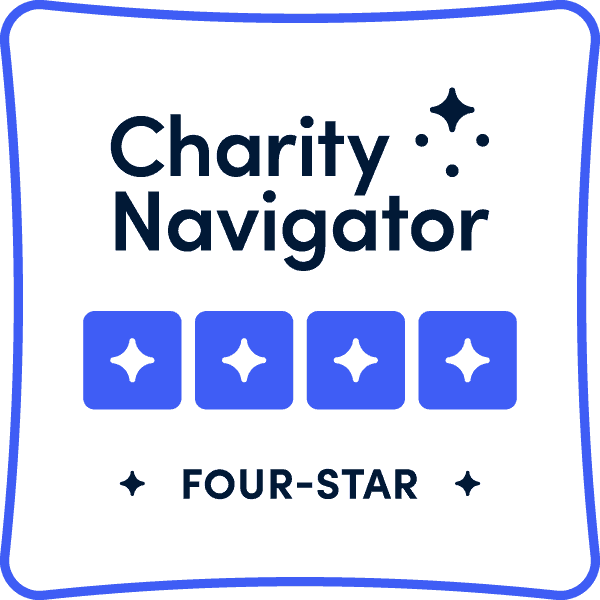A Walk Through the JCAP Special Issue on Management of PANS
A Walk Through the JCAP Special Issue on Clinical Management of PANS features a panel presentation of nationally renowned experts skilled in diagnostic and therapeutic approaches who will present an in depth training on the PANS Research Consortium Treatment Recommendations 2017: JCAP Volume: 27 Issue 7: September 1, 2017, Clinical Management of Pediatric Acute-Onset Neuropsychiatric Syndrome.
Hosted by Neuroimmune Foundation and accredited in collaboration with The Wisconsin Medical Society.
The live event has concluded and CME is no longer available.
This recording is not currently available.
The Walk Through the JCAP Special Issue on Clinical Management of PANS features a panel presentation of nationally renowned experts skilled in diagnostic and therapeutic approaches who present an in depth training on the PANS Research Consortium Treatment Recommendations 2017: JCAP Volume: 27 Issue 7: September 1, 2017, Clinical Management of Pediatric Acute-Onset Neuropsychiatric Syndrome.
The intended audience is pediatric and adult physicians. Both generalists as well as specialists will find the conference valuable to their practices. The conference is designed for pediatricians, family physicians, psychiatrists, rheumatologists, immunologists, neurologists, infectious disease, and emergency room physicians. Though the conference is designed for physicians, physician assistants and nurse practitioners will find the series valuable to their practices as well.
Though all content is geared towards clinicians, patients and families are welcome to attend.
The live event was accredited. There are no CME credits available for those accessing the recordings.

Join us in an ongoing opportunity for physicians to consult face-to-face virtually on challenging cases with leading experts in the field of neuroimmunology. Our Expert Case Consultation Panel meets monthly.
Speakers

Jenny Frankovich, MD, MS
Clinical Professor of Pediatrics, Rheumatology, Stanford University School of Medicine; Director, Stanford PANS Research Program

Hrissanthi (Chris) Ikonomidou, MD, PhD
Chief, Section of Pediatric Neurology, University of Wisconsin American Family Children’s Hospital; Faculty, University of Wisconsin School of Medicine and Public Health

Mark Pasternack, MD
Chief of Infectious Disease, Massachusetts General Hospital; Associate Professor of Pediatrics, Massachusetts General Hospital, Harvard

Gail Bernstein, MD
Professor, Department of Psychiatry and Behavioral Sciences, Head, Program in Child & Adolescent Anxiety & Mood Disorders, University of Minnesota Medical School, Masonic Institute for the Developing Brain

Cynthia Kapphahn, MD
Medical Director, Eating Disorders Program, Lucile Packard Children’s Hospital, Stanford; Clinical Professor, Division of Adolescent Medicine, Stanford University School of Medicine

Kiki Chang, MD
Child, Adolescent, and Adult Psychiatrist, Adjunct Professor of Psychiatry, Department of Psychiatry and Behavioral Sciences, McGovern Medical School, University of Texas Health Science Center at Houston
Learning and Outcome Objectives
- Learn how to accurately diagnose Pediatric Acute-Onset Neuropsychiatric Syndrome.
- Learn how to effectively treat inflammatory brain conditions.
- Recognize that neuropsychiatric sequelae can result from infections, autoimmune, and inflammatory conditions.
- Recognize the symptoms of PANS and understand the diagnosis guidelines.
- Articulate appropriate psychiatric and behavioral interventions for patients with PANS.
- Learn which immunomodulatory therapies are appropriate for patients with PANS and in which circumstances they are appropriate.
- Articulate how to properly treat and prevent infections in patients with PANS.
A Walk Through the JCAP Special Issue
on Clinical Management of PANS
Hosted by Neuroimmune Foundation
and accredited in collaboration with
The Wisconsin Medical Society
Saturday, February 25, 2023
A Live Virtual Event via Zoom
The Walk Through the JCAP Special Issue on Clinical Management of PANS features a panel presentation of nationally renowned experts skilled in diagnostic and therapeutic approaches who will present an in depth training on the PANS Research Consortium Treatment Recommendations 2017: JCAP Volume: 27 Issue 7: September 1, 2017, Clinical Management of Pediatric Acute-Onset Neuropsychiatric Syndrome.
Target Audience
The intended audience is pediatric and adult physicians. Both generalists as well as specialists will find the conference valuable to their practices. The conference is designed for pediatricians, family physicians, psychiatrists, rheumatologists, immunologists, neurologists, infectious disease, and emergency room physicians. Though the conference is designed for physicians, physician assistants and nurse practitioners will find the series valuable to their practices as well.
Though all content is geared towards providers, patients and families are welcome to attend.
Statement of Need
Immune-mediated causes of neuropsychiatric deteriorations are frequently misdiagnosed. There is a pressing need for medical knowledge in this area to advance due to the increasing number of patients suffering post-COVID-19 neuropsychiatric sequelae. The clinical management of Pediatric Acute-Onset Neuropsychiatric Syndrome, with a focus on psychiatric and behavioral interventions, use of immunomodulatory therapy, and the treatment and prevent of infections was covered in a special issue of the Journal of Child and Adolescent Psychopharmacology, however, a more in depth training will help physicians fully understand the clinical management.
Additional Information
Neuroimmune Foundation subscribes to the articles of Title III of the Americans with Disabilities Act of 1990. Should you or anyone accompanying you require special assistance, please notify us by contacting cme@neuroimmune.org or 608-381-0367. Requests should be made as early as possible to allow time to arrange the accommodation.
North Carolina physicians are welcome to attend this CME free of charge thanks to a grant from the legislature. To qualify, please fill out the form. Once your credentials have been verified, you’ll be provided access to the materials.
The cost of registration for all others is $150. Please submit payment below in order to be granted access. No refunds will be granted. This is a live virtual event that will not be recorded for distribution.
Copyright to this series is held by Neuroimmune Foundation.
Instructions to Receive Credit
This continuing medical education is a live virtual (Zoom) event. References will be linked to online resources. In order to receive credit for this activity, the participant must attend the live event and complete the evaluation. Participants will submit their signed evaluation and registration form on the website below no later than March 15, 2023, and will receive their CME certificates via email.
List of references from the literature for future reading
PANS Research Consortium Treatment Recommendations 2017: JCAP Volume: 27 Issue 7: September 1, 2017, Clinical Management of Pediatric Acute-Onset Neuropsychiatric Syndrome:
- Part I-–Psychiatric and Behavioral Interventions. Thienemann M et al.
- Part II—Use of Immunomodulatory Therapies. Frankovich J et al.
- Part III—Treatment and Prevention of Infections. Cooperstock MS et al.
- CDC page on Group A Strep https://www.cdc.gov/groupastrep/diseases-hcp/index.html
Activity Director:
Anna Conkey, Executive Director and Founder, Neuroimmune Foundation
Ms. Conkey has no relevant financial relationship(s) to disclose with ineligible companies whose primary business is producing, marketing, selling, re-selling, or distributing healthcare products used by or on patients.
Planning committee member:
Amy Malik, MD
Dr. Malik has no relevant financial relationship(s) to disclose with ineligible companies whose primary business is producing, marketing, selling, re-selling, or distributing healthcare products used by or on patients.
Host/Moderator:
Anna Conkey, Executive Director and Founder, Neuroimmune Foundation
Learning and Outcome Objectives
- Learn how to accurately diagnose Pediatric Acute-Onset Neuropsychiatric Syndrome.
- Learn how to effectively treat inflammatory brain conditions.
- Recognize that neuropsychiatric sequelae can result from infections, autoimmune, and inflammatory conditions.
- Recognize the symptoms of PANS and understand the diagnosis guidelines.
- Articulate appropriate psychiatric and behavioral interventions for patients with PANS.
- Learn which immunomodulatory therapies are appropriate for patients with PANS and in which circumstances they are appropriate.
- Articulate how to properly treat and prevent infections in patients with PANS.
Accreditation / Credit Designation Statement
This activity has been planned and implemented in accordance with the accreditation requirements and policies of the Accreditation Council for Continuing Medical Education (ACCME) through the joint providership of Wisconsin Medical Society and Neuroimmune Foundation. The Wisconsin Medical Society is accredited by the ACCME to provide continuing medical education for physicians.
The Wisconsin Medical Society designates this enduring material activity for a maximum of 4 AMA PRA Category 1 Credit(s)™. Physicians should claim only the credit commensurate with the extent of their participation in the activity.
This activity has been produced with no commercial support. We are very grateful to the State of North Carolina for the educational grant that allowed us to offer this event free to North Carolina physicians.
Faculty, Agenda, and Syllabus
Presentation Synopsis:
The Walk Through the JCAP Special Issue on Clinical Management of PANS features nationally renowned experts skilled in diagnostic and therapeutic approaches who will teach clinicians to recognize the symptoms of PANS and understand the diagnosis guidelines. Additionally, they will articulate appropriate psychiatric and behavioral interventions and how to properly treat and prevent infections in patients with PANS. Attendees will learn which immunomodulatory therapies are appropriate for patients with PANS and in which circumstances they are appropriate.
Panel presentation/discussion with the following faculty:
Jennifer Frankovich, MD
Clinical Professor of Pediatrics, Rheumatology, Director of PANS Research Program, Stanford University School of Medicine
Dr. Jennifer Frankovich’s primary research and clinical interest is in the intersection between mental health and systemic inflammation. She co-founded the Stanford PANS multidisciplinary clinic and research program. Alongside other collaborators, she is building a large biorepository of patient blood samples and clinical data to share with basic scientists around the world. She collaborates with 10 basic science labs at Stanford to characterize the immunophenotypes of active PANS compared to remission samples and age matched controls. Her ultimate goal is to understand the immunological factors contributing to mental health disturbances and to innovate effective multidisciplinary treatment regimens.
Dr. Frankovich has no relevant financial relationship(s) to disclose with ineligible companies whose primary business is producing, marketing, selling, re-selling, or distributing healthcare products used by or on patients.
Hrissanthi (Chris) Ikonomidou, MD, PhD
Chief, Section of Pediatric Neurology, University of Wisconsin American Family Children’s Hospital Faculty, University of Wisconsin School of Medicine and Public Health
Dr. Hrissanthi (Chris) Ikonomidou is a Child Neurologist and physician researcher with expertise in neurodegenerative and neurodevelopmental disorders. She is the Division Chief of Pediatric Neurology at the University of Wisconsin Madison and American Family Children’s Hospital. She received her MD and PhD degrees from the University of Goettingen in Germany.
She completed her residency and Pediatric Neurology fellowship at Washington University in St Louis and holds board certification in Neurology with Special Qualification in Child Neurology and UCNS certification in Headache. Dr Ikonomidou and her team discovered that imbalance between excitatory and inhibitory signals in the developing brain can lead to brain injuries and subsequent neurologic, cognitive, and mental disabilities. Several pediatric drugs, including sedatives, anesthetics, and anticonvulsants utilize these mechanisms to elicit their therapeutic effects and bear the potential to cause brain injury during critical periods of brain development.
Her current research aims to investigate ways to prevent neurotoxicity of these classes of medications in infants and children. Her second research focus entails adverse effects of cancer chemotherapy agents on the developing central nervous system. She has authored over 140 peer reviewed publications and book chapters and serves on several editorial boards of scientific journals.
Dr. Ikonomidou has no relevant financial relationship(s) to disclose with ineligible companies whose primary business is producing, marketing, selling, re-selling, or distributing healthcare products used by or on patients.
Mark Pasternack, MD
Chief of Infectious Disease, Massachusetts General Hospital; Associate Professor of Pediatrics, Massachusetts General Hospital, Harvard
Dr. Mark Pasternack serves as Chief, Pediatric Infectious Disease Unit, at Massachusetts General Hospital. Educated at Harvard Medical School, Dr. Pasternack completed his residency and clinical infectious disease fellowship at Massachusetts General Hospital and a research fellowship at the Center for Cancer Research, Massachusetts Institute of Technology. Author of numerous papers and articles for prestigious medical journals, Dr. Pasternack is an officer of the Massachusetts Infectious Diseases Society and a member of the Pediatric Infectious Disease Society as well as the Infectious Diseases Society of America. His broad clinical interests include Infectious Disease and Pediatric Infectious Disease. Dr. Pasternack has provided clinical care to PANS/PANDAS patients for over a decade and has participated in the PANS/PANDAS Research Consortium to develop clinical guidelines for the management of these patients.
Dr. Pasternack receives equity from Merck and author royalties from Up To Date. All of the relevant financial relationships for this individual have been mitigated.
Cynthia Kapphahn, MD, MPH
Medical Director, Eating Disorders Program
Lucile Packard Children’s Hospital, Stanford
Clinical Professor, Division of Adolescent Medicine
Stanford University School of Medicine
Dr. Cynthia Kapphahn is a Clinical Professor in the Division of Adolescent Medicine at Stanford University School of Medicine. She is Medical Director of the Eating Disorders Program at Stanford Medicine Children’s Health, which specializes in the treatment of adolescents and young adults with eating disorders. She completed medical training at Yale Medical School, a pediatric residency at the Johns Hopkins Hospital, and an adolescent medicine fellowship at the University of California, San Francisco. She received a master’s degree in Public Health and Policy from Johns Hopkins University. In addition to her clinical and administrative responsibilities, she is involved in research regarding eating disorders, medical complications, and care outcomes, and has a special interest in Avoidant Restrictive Food Intake Disorder (ARFID). She is a member of the National Eating Disorders Quality Improvement Research Collaborative, and has served as Chairman of the Society for Adolescent Health and Medicine’s Eating Disorder Clinical Committee.
Dr. Kapphahn has no relevant financial relationship(s) to disclose with ineligible companies whose primary business is producing, marketing, selling, re-selling, or distributing healthcare products used by or on patients.
Gail Bernstein, MD
Professor, Department of Psychiatry and Behavioral Sciences
Head, Program in Child & Adolescent Anxiety & Mood Disorders
University of Minnesota Medical School
Masonic Institute for the Developing Brain
Dr Gail Bernstein is a Professor with Tenure in the Department of Psychiatry & Behavioral Sciences at the Masonic Institute for the Developing Brain at the University of Minnesota. She holds the Endowed Professorship in Child and Adolescent Anxiety Disorders. Dr. Bernstein’s areas of research and clinical expertise over the years have been anxiety disorders in children and adolescents and pediatric obsessive-compulsive disorder (OCD). She opened a PANS Clinic at the University of Minnesota in 2016. Dr. Bernstein has studied many aspects of pediatric anxiety disorders including assessment, nosology, family studies, pharmacological treatments, and cognitive-behavioral interventions. She served as Principal Investigator on a NIMH study entitled Effects of Sertraline on Brain Connectivity in Adolescents with OCD. She recently completed a NIMH study evaluating two forms of digital cognitive-behavioral group therapy for teenagers with social anxiety. Currently Dr. Bernstein is Co-Investigator on studies using fMRI and other measures to determine if engagement in creative activities may enhance cognitive flexibility and improve symptoms of depression in teenagers.
Dr. Bernstein has no relevant financial relationship(s) to disclose with ineligible companies whose primary business is producing, marketing, selling, re-selling, or distributing healthcare products used by or on patients.
Kiki Chang, MD
Child, Adolescent, and Adult Psychiatrist
Adjunct Professor of Psychiatry, Department of Psychiatry and Behavioral Sciences, McGovern Medical School, University of Texas Health Science Center at Houston
Dr. Kiki Chang is a child, adolescent and adult psychiatrist in private practice in Palo Alto, CA. From 1999 – 2017 he was on the faculty of the Stanford University School of Medicine, Division of Child Psychiatry, where he was Director of the Pediatric Bipolar Disorders Clinic and Research Program, specializing in pediatric psychopharmacology and treatment of depression and bipolar disorder in children and adolescents. His research includes brain imaging, genetics, and medication and psychotherapy trials, designed to identify those at highest risk for bipolar disorder and methods to intervene to prevent its onset. In 2012, Dr. Chang co-founded the Stanford Pediatric Acute-Onset Neuropsychiatric Syndrome (PANS) Clinic and Research Program at the Lucille Packard Children’s Hospital at Stanford. He then expanded his research to include immunologic, inflammatory, and brain imaging research in PANS in order to understand the medical etiology and better treatment algorithms for these afflicted youth. Dr. Chang graduated cum laude from Princeton University in 1988 and received his MD from the Tufts University School of Medicine in 1993. He completed his general psychiatry residency at the University of Cincinnati and his child psychiatry fellowship at Stanford University. After a postdoctoral research fellowship, Dr. Chang joined the Stanford faculty in 1999. Dr. Chang is the recipient of the 2003 American Psychiatric Association/AstraZeneca Young Minds in Psychiatry Award. His research has been funded by the NIMH, NARSAD, the Prechter Fund, the Hahn Family, and other private donors. He is the recipient of multiple K-Awards and R01 grants from the NIMH. Dr. Chang is the author of over 130 papers and book chapters regarding bipolar disorder and PANS and has presented widely at national and international scientific conferences and meetings.
Dr. Chang is a consultant for Sunovion, AbbVie, and Compass Pathways. All the relevant financial relationships for this individual have been mitigated.
Wish to view the recording?
This recording is not currently available.
Please note CME was granted solely for the live event and is no longer available.





